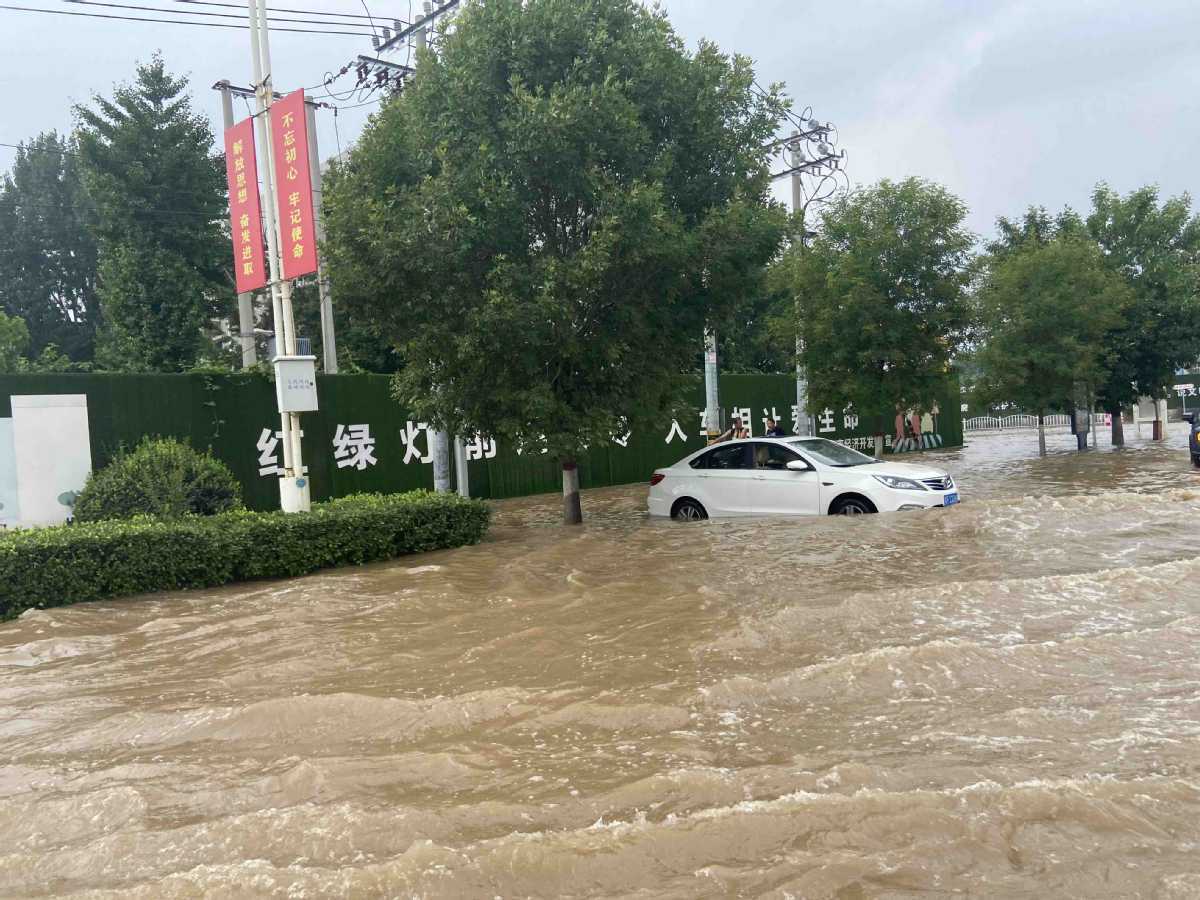Hebei's contribution to flood relief should be cherished


The heavy rainfall in the Beijing-Tianjin-Hebei region since July 29 brought about by Typhoon Doksuri has caused widespread flooding and severely undermined the safety and well-being of people living in the areas.
The situation in Zhuozhou, Hebei, is particularly bad, as continuous heavy rainfall and upstream floodwaters have affected more than 130,000 inhabitants there.
Since the flood struck, Hebei province has diverted 1.8 billion cubic meters of floodwater to diversion and storage areas in Langouwa, and Dongdian, reducing the pressure on Beijing and Tianjin and the downstream region.
Also, nearly 1.229 million people have been evacuated, with more than 850,000 people being relocated from the diversion and storage areas.
Diversion and storage areas, also known as flood detention basins, are low-lying regions and lakes outside the river embankments where floodwaters are temporarily stored during floods.
Langouwa and Xiaoqing River, two diversion and storage areas in Zhuozhou, are among those activated to reduce losses in the downstream areas. Some of the trapped residents in the city are still seeing power and internet outages, making rescue efforts difficult.
Publishing houses with storehouses in Zhuozhou, a major publishing hub, have suffered huge losses with books getting inundated.
According to Article 32 of the Flood Control Law, the authorities of regions and units that benefit directly from the flood storage and detention basins are obliged to pay compensation and provide relief for these basins according to the regulations of the State. The State Council and the governments of the provinces, autonomous regions or municipalities directly under the government concerned shall set up the system for giving support, making compensation and providing relief with regard to the flood storage and detention basins.
In response to the devastating floods, the National Development and Reform Commission announced a 100 million yuan ($13.92 million) package to support emergency recovery and reconstruction efforts in Beijing and Hebei. The aim is to help rebuild infrastructure and public facilities in the affected areas.
The recent floods underscore the urgent need for paying better attention and supporting disaster-stricken areas like Zhuozhou. While flood diversion plays a vital role in safeguarding larger cities and minimizing overall losses, such actions must be accompanied by effective compensation mechanisms for those who are affected. The safety and well-being of the people living in the flood-prone regions should always be priority, and their losses should be mitigated through timely and adequate compensation.
Moving forward, it is crucial to enhance communication and notification systems during floods to minimize losses and provide timely information to residents and authorities. This will enable better preparedness and response measures, thereby reducing the impact of disasters on people's lives and property.
Ensuring the safety of people in flood diversion areas, ensuring adequate compensation, and assisting in the swift reconstruction of their homes and livelihoods are essential aspects of disaster management. The recent floods in the Beijing-Tianjin-Hebei region serve as a wake-up call to prioritize the well-being of vulnerable communities and implement effective measures to minimize the impact of such disasters caused by extreme weathers in the future.
The author is a writer with China Daily.


































